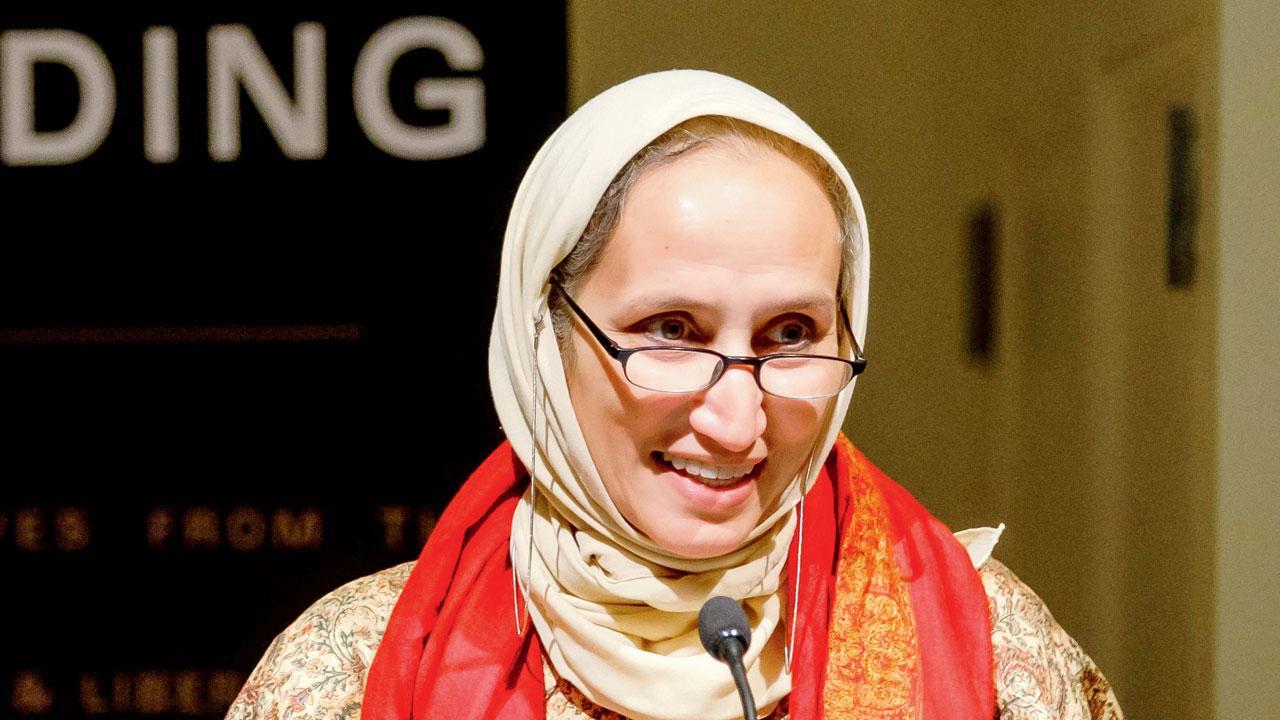Chicago-based academician, who won the Sheikh Zayed Book Award, says the Dawoodi Bohra community in Mumbai inspired her to study the Arabic language

Dr Tahera Qutbuddin was awarded the Sheikh Zayed Book Award for her book Arabic Oration: Art and Function. Pic Courtesy/Ken Bennett
Mumbai-born Dr Tahera Qutbuddin, the American professor who was recently awarded the Sheikh Zayed Book Award for her groundbreaking work, Arabic Oration: Art and Function, says her home city played an important role in shaping her love for the Arabic language. The award is considered to be the most prestigious prize in the Arab world for literature and culture. Qutbuddin, who teaches Arabic literature at the University of Chicago, was born and raised in South Mumbai, and completed her schooling from Villa Theresa High School, before graduating from Sophia College for Women.
Her book delves into the origins of Arabic oration, focusing on the Khutbahs of Mohammed Rasulullah SA and Imam Ali. A member of the Dawoodi Bohra community, Qutbuddin says Mumbai and her community, in particular, inspired her work. “The city is a part of me. My childhood years are filled with happy memories of living here. I received my education at a convent school in the city, with three years in the middle spent at the Presentation Convent in Kodaikanal. Growing up in a dynamic, bustling, alive city like Mumbai contributed to my immediate sense of belonging in Cairo and Chicago, both of which are vibrant cities like Mumbai. The Lake Shore Drive in Chicago, which I can see from my apartment window, is a mirror image of Mumbai’s Marine Drive,” she says.
The academician says she was drawn to Arabic literature as a child. She first encountered Arabic through the Quran and lessons taught by her father Syedna Khuzaima Qutbuddin, who is related to Syedna Mohammed Burhanuddin, the former head of the Dawoodi Bohra community. “I was drawn to the typical Indian cadences of the chanted poems recited in community gatherings, as well as the deep wisdom contained in these texts, and the sheer beauty and tempo of the language.” Arabic has been and continues to be a living and thriving language in India for millennia, she says. “I wrote an article on Arabic in India several years ago, and I continue to work on this aspect, particularly with regard to the Dawoodi Bohra heritage and the Arabic-Islamic writings of its savants, and now—alongside English and Bohra Gujarati—of the powerful and timely online lectures titled Majalis al-Hikma (Assemblies of Wisdom) of Syedna Taher Fakhruddin,” she says.
Also Read: Casteless Mumbai is a myth
Qutbuddin began work on this book by chance. She was researching the speeches and sermons of Imam Ali, the Prophet Muhammad’s cousin, who is also the first Shia Imam, and is known as the master orator of Arabic eloquence, for another book project.
Digging deep into these 7th century texts, she discovered compelling aspects of these sermons, especially their consistent rhythm, which, she says, no scholar had previously studied. She then studied orality theory as well as the theory of mnemonics (rhetorical devices that aid memorisation) and connected the two. “The orations were produced in a largely oral culture, where in order for your words to be remembered, you had to speak in pulsating rhythms that the brain could easily retain, vivid and graphic images that the mind would capture and hold, and pithy maxims that packed a powerful punch. I’ve always been fascinated by the power of the written word, how aesthetics can be used to persuade in real-life functions such as politics, law, battles, governance, and preaching religion and ethics, and these texts were just marvellous examples of this formidable medium,” Qutbuddin recalls.
She then began by writing what she thought would be a brief piece on the subject, but it ended up running into a hundred pages, and eventually, a 10-year project, which culminated in the book. She has now circled back to the initial project on Ali’s sermons, and she feels that the Arabic Oration book has greatly enhanced the analytical toolbox at her disposal.
 Subscribe today by clicking the link and stay updated with the latest news!" Click here!
Subscribe today by clicking the link and stay updated with the latest news!" Click here!









